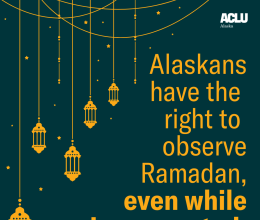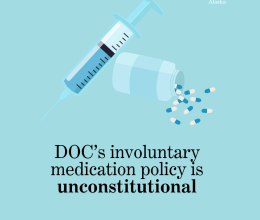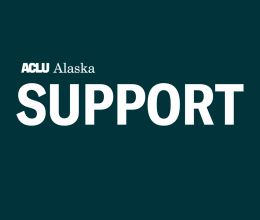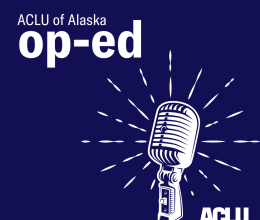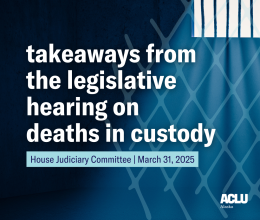
On any given day, nearly 5,000 people are incarcerated in Alaska’s jails and prisons, and while this population appears relatively small, Alaska leads the nation in incarceration per capita. So much so, that if Alaska were an independent nation, it would have one of the highest incarceration rates in the world. Disproportionately, those incarcerated are Alaska Native.
Across the United States, the incarceration rate of Indigenous Peoples is twice the rate of white people – a pattern that Alaska is on trend with.
Here are some statistics about Alaska Native Peoples and the prison system.
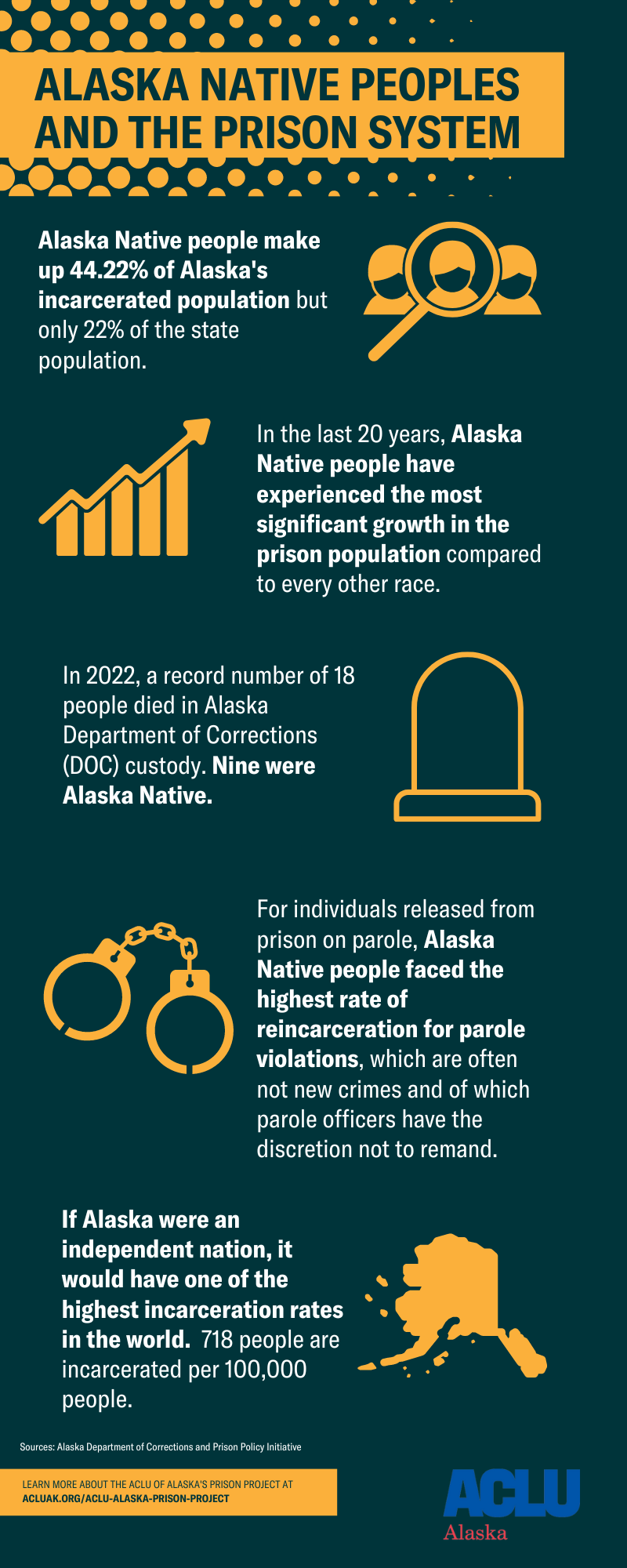
Additionally:
- Fifty Alaska Native people, per 1,000 people, were incarcerated between July 1, 2021, and June 30, 2022. Comparatively, 74 Black Alaskans were incarcerated per 1,000 people, and 20 white Alaskans were incarcerated per 1,000 people.
- For all races, discretionary parole denials are at a historic high, but this especially true for people of color. In 2022, 74% of Alaska Native applicants were denied, 80% of Black applicants were denied, 75% of Hispanic/Latino applicants were denied, and 66% of white applicants were denied.
- More than 7-in-10 (71%) people in Alaska personally know someone who has been incarcerated or have been incarcerated themselves.
The impact of incarceration on families – the psychological stress and economic hardship affecting both parents and children – is undeniable in the minds of voters, with nearly two-thirds (64%) considering it a good reason to reform the criminal justice system.
The ACLU of Alaska’s Prison Project is dedicated to ensuring that our state’s jails and prisons comply with U.S. and Alaska Constitutional law. We are working to end policies that criminalize poverty, substance misuse, and mental health issues which result in disproportionate rates of incarceration for Black and Brown people.
Learn more about the ACLU of Alaska’s Prison Project.
Alaska demographic data: The ACLU of Alaska collected demographic data on the state’s incarcerated population from the Alaska Department of Corrections (DOC), here. Unlike the Census, where people can report more than one race, incarcerated people can only report one. If incarcerated people could more accurately report race, we believe racial disparities would be even greater. The incarceration rates of Indigenous people across the country was provided by the Prison Policy Initiative, and can be found here.
Parole: Parole and revocation information was provided by DOC and can be found here.
DOC deaths: Information on deaths in custody was compiled by the ACLU of Alaska. A revocation is a return to custody while on parole supervision.
Incarceration rates: This state-by-state data was provided by the Prison Policy Initiative and can be found, here, and includes pretrial, unsentenced and sentenced detainees.
Personal connections to prisons: The ACLU hired Strategies 360, a leading bipartisan national research firm with deep experience in Alaska, to conduct a mixed-mode survey of 500 registered voters in Alaska. Interviews were conducted August 1-8, 2022. The sample was weighted to accurately reflect the statewide electorate. The margin of error for a survey of 500 interviews is ±4.4 percentage points at the 95% confidence level.
The findings indicated that voters in Alaska want to see bold changes to improve safety and to combat rising incarceration rates. In a survey of 500 voters across the state, voters overwhelmingly support an approach to crime and safety that recognizes the toll that incarceration has taken on families, incarcerated individuals, and the state economy.
Justice Center data: The UAA Justice Center tracks a variety of data related to Alaska’s criminal legal system. Find all of them, here.
